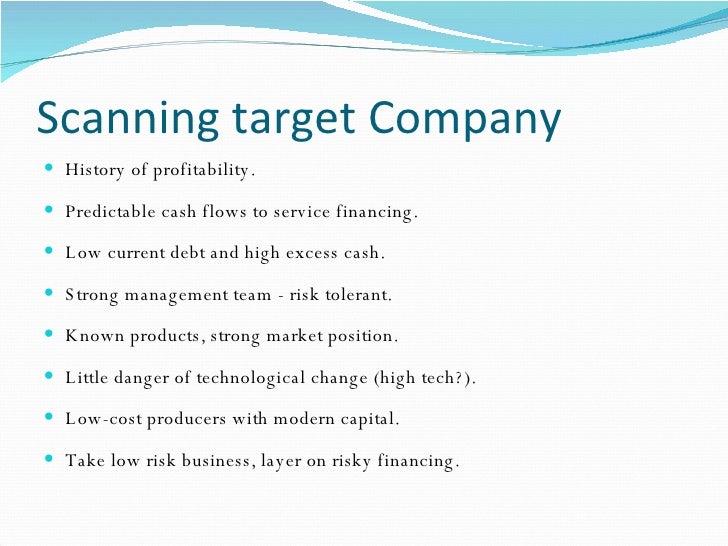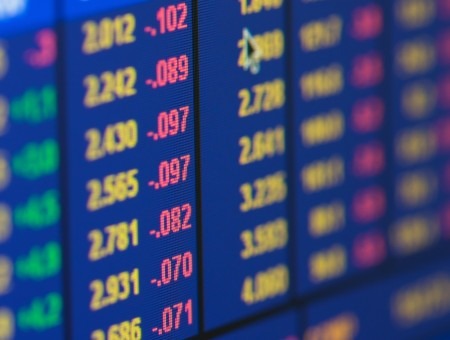Company buyout shares
A publicly traded company is one in which shares are issued to individual investors. Rather than being owned by a select group of corporate insiders, anyone who buys even a single share in a publicly traded company owns at least a small percentage of the company. If investors buy out a publicly traded company, it means those investors have bought all the shares formerly owned by the general public.
The pros and cons of taking a company buyout - CBS News
Theoretically, anyone with enough money can buy out a public company. Since stock shares trade publicly on the stock exchange, they are free for purchasing by anyone who pays the current share price.
In reality, since it would usually cost many millions, or even billions, of dollars to buy out a company, investors typically need financing. One method of financing, known as a leveraged buyout, involves investors borrowing money through bank loans or bond issuance to pay for the outstanding shares of stock.
What happens to the stock prices of two companies involved in an acquisition?
If a corporation buys out a stock, the purchasing corporation may use its own stock to buy out the target company through a process known as a stock swap.
When a company is bought out, it no longer exists as its own independently traded company. Investors receive some type of compensation for their existing shares, such as cash or shares of stock in another company, but the original company no longer trades on the stock exchange. In a cash transaction, existing shareholders no longer have any ownership in the bought-out company, as they have received cash remuneration.
In a stock swap, investors will hold an ownership interest in the surviving company, unless they choose to sell the stock. Generally, a company that is bought out enjoys a rise in its share price. Since investors can get the current market price of a stock at any time simply by selling shares on the stock exchange, they won't typically sell to another company unless a price premium is offered.
Often, a company's share price will rise if there is even a rumor of a buyout, as investors buy the stock ahead of the price rise typically associated with a buyout. When the buyout actually occurs, investors are rewarded with a cash payment. In a stock swap buyout, investors may benefit from owning shares in the consolidated company, since the synergies between the target company and the acquiring company may result in greater corporate profits.

One of the main disadvantages for shareholders in a bought-out company is that they no longer own shares in that company. If the long-term value of the company is higher than the cash price investors receive, they have no way to participate in the future upside of that company. Another disadvantage of a cash offer is that investors will usually have to pay income tax or capital gains tax on the cash proceeds, as the Internal Revenue Service views that buyout as a realized capital gain.
In a stock swap buyout, an investor may receive shares in a company in which he has no interest in owning. The costs of financing in a leveraged buyout can also prove disastrous for some acquiring companies. A stock buyout can result in a large cash payment for investors.
Buyout Scenarios Theoretically, anyone with enough money can buy out a public company. Consequences When a company is bought out, it no longer exists as its own independently traded company. Benefits Generally, a company that is bought out enjoys a rise in its share price. Disadvantages One of the main disadvantages for shareholders in a bought-out company is that they no longer own shares in that company.
References The Free Dictionary: Leveraged Buyout LBO Dictionary. A Record Buyout Turns Sour for Investors The Motley Fool: You Might Not Have Wanted This Benefit from the MHS ESRX Merger Mashable.
Yahoo Stock Jumps on Acquisition Rumors Bloomberg BusinessWeek: Nokia Advances Most in Five Months on Takeover Speculation The Oregonian: A buyout with a blessing and a tax bite.

What Is a Stock Liquidation? What Happens When Companies Pay a Dividend?
Stock Split ETFS Vs. Mutual Funds What Happens if You Sell a Dividend-Paying Stock After Receiving a Dividend?
5 Facts About Stock Buyouts That May Surprise You - umisifuy.web.fc2.com
What Happens to Stockholders When a Business Is Merged? How Does a Share Buyback Work? What Does the Q Stand for at the End of a Stock Symbol?
What Determines Whether the Price of a Mutual Fund Goes Up? Disadvantages of Stock Splits. More Articles You'll Love.

Importance of Stock Dividends. What Are the Alternatives to Cash Dividends for Shareholders? What Happens if You Sell a Dividend-Paying Stock After Receiving a Dividend? About Us Careers Investors Media Advertise with Us Check out our sister sites. Privacy Policy Terms of Use Contact Us The Knot The Bump.